Housing Development & Tenant Protection

State government.
Eliminates time limits for filing childhood sexual assault claims occurring after January 1, 2024. Extends maximum repayment terms for school district emergency loans from 20 to 30 years. Requires clear corroborating evidence beyond victim testimony for pre-2006 sexual assault claims. Reduces immediate payment requirements for public entities from 50% to 25% in tort claim judgments.
State government.

Eliminates time limits for filing childhood sexual assault claims occurring after January 1, 2024. Extends maximum repayment terms for school district emergency loans from 20 to 30 years. Requires clear corroborating evidence beyond victim testimony for pre-2006 sexual assault claims. Reduces immediate payment requirements for public entities from 50% to 25% in tort claim judgments.

Fireworks licenses and permits: criminal convictions: local jurisdictions.
Tightens fireworks licensing oversight with new documentation and enforcement. Requires permits, entitlements, and storage-site information, and failure may trigger denial. Import/export notices must be sent to the destination local jurisdiction. Expands denial and renewal grounds to violent crimes over one year, with no state reimbursements.
Fireworks licenses and permits: criminal convictions: local jurisdictions.

Tightens fireworks licensing oversight with new documentation and enforcement. Requires permits, entitlements, and storage-site information, and failure may trigger denial. Import/export notices must be sent to the destination local jurisdiction. Expands denial and renewal grounds to violent crimes over one year, with no state reimbursements.

Homelessness.
Requires annual instead of biennial evaluations of state homelessness prevention goals. Mandates specific goals to reduce homelessness among domestic violence survivors and unaccompanied women. Establishes cross-system partnerships to streamline access to housing and social services.
Homelessness.

Requires annual instead of biennial evaluations of state homelessness prevention goals. Mandates specific goals to reduce homelessness among domestic violence survivors and unaccompanied women. Establishes cross-system partnerships to streamline access to housing and social services.
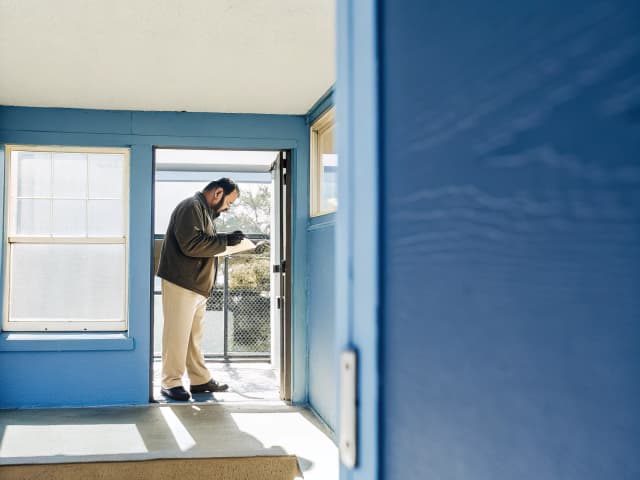
Housing finance and development: Sacramento Area Housing and Homelessness Agency: Multifamily Housing Program: Homekey: Homeless Housing, Assistance, and Prevention program.
Establishes the Sacramento Area Housing and Homelessness Agency to coordinate regional housing and homeless services. Requires transfer of local housing trust funds and tax revenues to the new agency for affordable housing projects. Mandates consideration of former foster youth and low-income households in state housing program funding. Creates an 11-member governing board with representatives from Sacramento County and qualified cities.
Housing finance and development: Sacramento Area Housing and Homelessness Agency: Multifamily Housing Program: Homekey: Homeless Housing, Assistance, and Prevention program.

Establishes the Sacramento Area Housing and Homelessness Agency to coordinate regional housing and homeless services. Requires transfer of local housing trust funds and tax revenues to the new agency for affordable housing projects. Mandates consideration of former foster youth and low-income households in state housing program funding. Creates an 11-member governing board with representatives from Sacramento County and qualified cities.

Electric utility distribution and transmission system facilities: undergrounding and insulation.
Establishes a state working group to study costs of undergrounding electric utility lines to prevent wildfires. Requires submission of a comprehensive wildfire prevention investment plan to the Legislature by July 2027. Focuses on protecting high-risk fire zones through improved electrical infrastructure. Expires automatically on January 1, 2031 unless renewed by the Legislature.
Electric utility distribution and transmission system facilities: undergrounding and insulation.

Establishes a state working group to study costs of undergrounding electric utility lines to prevent wildfires. Requires submission of a comprehensive wildfire prevention investment plan to the Legislature by July 2027. Focuses on protecting high-risk fire zones through improved electrical infrastructure. Expires automatically on January 1, 2031 unless renewed by the Legislature.
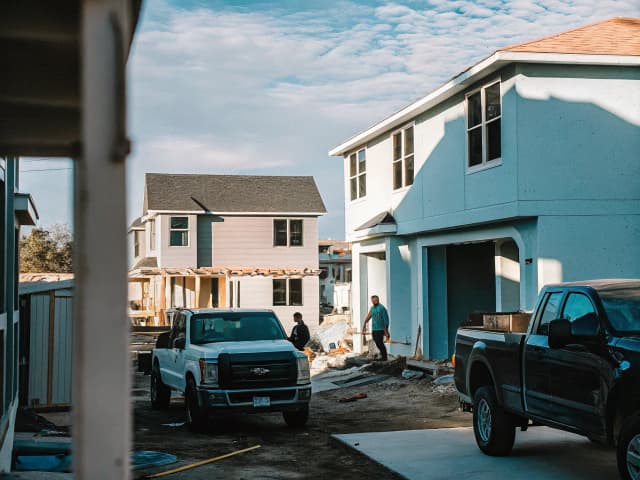
Planning and zoning: general plan: judicial challenges.
Establishes that the latest general plan element’s quantified development standards supersede earlier elements. Extends housing element compliance to 120 days and allows extensions for DHCD delays. Mandates that orders are immediately appealable and remedies may not be stayed during appeal. Requires an initial study; CEQA does not apply to compliance actions.
Planning and zoning: general plan: judicial challenges.

Establishes that the latest general plan element’s quantified development standards supersede earlier elements. Extends housing element compliance to 120 days and allows extensions for DHCD delays. Mandates that orders are immediately appealable and remedies may not be stayed during appeal. Requires an initial study; CEQA does not apply to compliance actions.
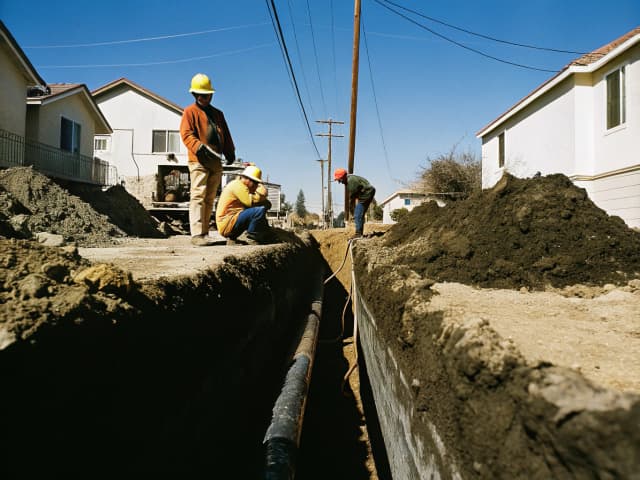
Enhanced infrastructure financing district: climate resilience districts.
Authorizes cities to create special financing districts for rebuilding areas damaged by declared disasters. Requires districts to use funds only for disaster repairs, risk mitigation, and economic recovery projects. Mandates public meetings and 30-day review periods before districts can be established. Limits adjacent non-disaster areas to 20% of total district territory.
Enhanced infrastructure financing district: climate resilience districts.

Authorizes cities to create special financing districts for rebuilding areas damaged by declared disasters. Requires districts to use funds only for disaster repairs, risk mitigation, and economic recovery projects. Mandates public meetings and 30-day review periods before districts can be established. Limits adjacent non-disaster areas to 20% of total district territory.

Infill Infrastructure Grant Program of 2019: applications: eligibility.
Expands the Infill Infrastructure Grant Program to include previously developed sites and vacant lots near urban areas. Requires 15% of units in qualifying projects to be affordable housing with long-term price restrictions. Prioritizes projects near transit stops and within walking distance of essential services like grocery stores. Creates separate application processes for small and large jurisdictions to ensure equitable fund distribution.
Infill Infrastructure Grant Program of 2019: applications: eligibility.

Expands the Infill Infrastructure Grant Program to include previously developed sites and vacant lots near urban areas. Requires 15% of units in qualifying projects to be affordable housing with long-term price restrictions. Prioritizes projects near transit stops and within walking distance of essential services like grocery stores. Creates separate application processes for small and large jurisdictions to ensure equitable fund distribution.

Mobilehome parks: closure, cessation, or change of use.
Requires mobilehome park owners to give tenants 12 months notice before closing or changing park use. Mandates park owners to offer qualified entities first opportunity to purchase before closure or conversion. Establishes new protections for tenants displaced by natural disasters including rent payment exemptions. Requires state-approved forms and monitoring by the Department of Housing and Community Development.
Mobilehome parks: closure, cessation, or change of use.

Requires mobilehome park owners to give tenants 12 months notice before closing or changing park use. Mandates park owners to offer qualified entities first opportunity to purchase before closure or conversion. Establishes new protections for tenants displaced by natural disasters including rent payment exemptions. Requires state-approved forms and monitoring by the Department of Housing and Community Development.

Encampment Resolution Funding program: safe parking sites: reporting.
Requires safe parking site details in funding applications. Requires data elements to HMIS with privacy protections and nonpublic status. Prioritizes grants for cross-systems collaboration and diverse communities. Authorizes up to 5% of funds for administration and requires annual department reporting.
Encampment Resolution Funding program: safe parking sites: reporting.

Requires safe parking site details in funding applications. Requires data elements to HMIS with privacy protections and nonpublic status. Prioritizes grants for cross-systems collaboration and diverse communities. Authorizes up to 5% of funds for administration and requires annual department reporting.
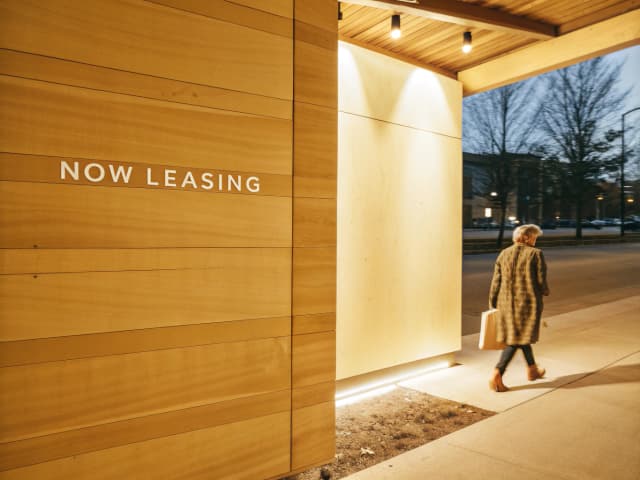
Education finance: Education Equalization Act: Equalization Reserve Account.
Establishes a new state fund to increase per-pupil funding in lower-funded school districts. Requires the state to transfer money to the fund when education funding increases year-over-year. Uses interest earned from the fund to help equalize funding between wealthy and non-wealthy districts. Requires voter approval of a constitutional amendment before taking effect.
Education finance: Education Equalization Act: Equalization Reserve Account.

Establishes a new state fund to increase per-pupil funding in lower-funded school districts. Requires the state to transfer money to the fund when education funding increases year-over-year. Uses interest earned from the fund to help equalize funding between wealthy and non-wealthy districts. Requires voter approval of a constitutional amendment before taking effect.

Validations.
Validates the legal status and operations of all existing state and local government bodies in California. Confirms the legitimacy of all previously issued government bonds and financial obligations. Establishes a six-month deadline to challenge the validity of any past government actions. Protects public agencies from legal challenges to their boundaries, mergers, or dissolutions.
Validations.

Validates the legal status and operations of all existing state and local government bodies in California. Confirms the legitimacy of all previously issued government bonds and financial obligations. Establishes a six-month deadline to challenge the validity of any past government actions. Protects public agencies from legal challenges to their boundaries, mergers, or dissolutions.

Validations.
Validates the legal status and actions of all existing California public agencies and districts through September 2025. Confirms the legitimacy of all bonds and financial obligations previously issued by public bodies. Requires legal challenges to public agency actions to be filed within six months of the act's effective date. Takes effect immediately as an urgency measure to ensure continuous public agency operations.
Validations.

Validates the legal status and actions of all existing California public agencies and districts through September 2025. Confirms the legitimacy of all bonds and financial obligations previously issued by public bodies. Requires legal challenges to public agency actions to be filed within six months of the act's effective date. Takes effect immediately as an urgency measure to ensure continuous public agency operations.

Validations.
Validates the legal status and past actions of all California public bodies and agencies to ensure operational stability. Confirms the legitimacy of previously issued bonds and financial obligations of public agencies. Requires any legal challenges to validated actions be filed within six months of the law taking effect. Takes effect immediately as an urgency measure to preserve public services and operations.
Validations.

Validates the legal status and past actions of all California public bodies and agencies to ensure operational stability. Confirms the legitimacy of previously issued bonds and financial obligations of public agencies. Requires any legal challenges to validated actions be filed within six months of the law taking effect. Takes effect immediately as an urgency measure to preserve public services and operations.

Sexual assault forensic evidence: testing.
Allows adult survivors to opt out of testing and retain evidence until testing is requested. Provides survivors access to testing status and related information via the SAFE-T portal. Extends retention to 20 years for unsolved cases or until the victim's 40th birthday. Imposes new duties on local agencies to retain non-tested kits, document transfers, and notify survivors.
Sexual assault forensic evidence: testing.

Allows adult survivors to opt out of testing and retain evidence until testing is requested. Provides survivors access to testing status and related information via the SAFE-T portal. Extends retention to 20 years for unsolved cases or until the victim's 40th birthday. Imposes new duties on local agencies to retain non-tested kits, document transfers, and notify survivors.

Transfer of real property: single-family homes, townhomes, and condominiums.
Restricts sales of new homes built after 2026 to individual buyers rather than corporate entities. Requires business entities buying homes to disclose all owners who control 25% or more of the company. Imposes $100,000 penalties per violation when homes are sold contrary to these restrictions. Limits individuals from transferring more than four homes to companies they partially own.
Transfer of real property: single-family homes, townhomes, and condominiums.

Restricts sales of new homes built after 2026 to individual buyers rather than corporate entities. Requires business entities buying homes to disclose all owners who control 25% or more of the company. Imposes $100,000 penalties per violation when homes are sold contrary to these restrictions. Limits individuals from transferring more than four homes to companies they partially own.

Regional housing need: methodology: distribution.
Requires regional housing authorities to distribute lost emergency housing units proportionally across jurisdictions rather than only where losses occurred. Mandates consideration of climate impacts like wildfire risk and sea level rise when allocating regional housing needs. Prohibits cities from using local ordinances or past housing production to reduce their housing allocation requirements. Strengthens public participation requirements in developing regional housing allocation methodologies.
Regional housing need: methodology: distribution.

Requires regional housing authorities to distribute lost emergency housing units proportionally across jurisdictions rather than only where losses occurred. Mandates consideration of climate impacts like wildfire risk and sea level rise when allocating regional housing needs. Prohibits cities from using local ordinances or past housing production to reduce their housing allocation requirements. Strengthens public participation requirements in developing regional housing allocation methodologies.

Self-service storage facilities: rental agreement disclosures.
Establishes mandatory disclosures on new self-service storage rental agreements. Requires six disclosures: term, promo status, promo duration, 12-month cap, termination steps, and owner contact. Requires first-page placement with larger, high-visibility formatting. Applies only to new agreements after January 1, 2026, and enforcement details are not specified.
Self-service storage facilities: rental agreement disclosures.

Establishes mandatory disclosures on new self-service storage rental agreements. Requires six disclosures: term, promo status, promo duration, 12-month cap, termination steps, and owner contact. Requires first-page placement with larger, high-visibility formatting. Applies only to new agreements after January 1, 2026, and enforcement details are not specified.

Housing programs: financing.
Requires DSCR of at least 1.15 and 15-year positive cash flow for new debt. Establishes subordination of new debt unless necessary for project feasibility and rehab funding. Expands extracted equity to include reimbursements for predevelopment costs and operating deficits. Triggers a senior regulatory agreement when extracted equity funds are used for enumerated purposes.
Housing programs: financing.

Requires DSCR of at least 1.15 and 15-year positive cash flow for new debt. Establishes subordination of new debt unless necessary for project feasibility and rehab funding. Expands extracted equity to include reimbursements for predevelopment costs and operating deficits. Triggers a senior regulatory agreement when extracted equity funds are used for enumerated purposes.

Housing.
Expands renter tax credits up to $500 for qualified households with dependents from 2026 to 2031. Limits landlords from charging fees beyond 5% of monthly rent unless specified in rental agreements. Requires electronic submission processes for coastal development permits by July 1, 2027. Funds seismic retrofitting of affordable multifamily housing with priority for low-income residents.
Housing.

Expands renter tax credits up to $500 for qualified households with dependents from 2026 to 2031. Limits landlords from charging fees beyond 5% of monthly rent unless specified in rental agreements. Requires electronic submission processes for coastal development permits by July 1, 2027. Funds seismic retrofitting of affordable multifamily housing with priority for low-income residents.

Housing development: streamlined approvals.
Requires ministerial approval for two-unit developments on single-family lots without discretionary review. Mandates minimum unit sizes of 1,750 square feet and eliminates impact fees for smaller developments. Streamlines urban lot splits by removing minimum lot size requirements and owner occupancy rules. Requires local agencies to submit housing ordinances to state for review within 60 days of adoption.
Housing development: streamlined approvals.

Requires ministerial approval for two-unit developments on single-family lots without discretionary review. Mandates minimum unit sizes of 1,750 square feet and eliminates impact fees for smaller developments. Streamlines urban lot splits by removing minimum lot size requirements and owner occupancy rules. Requires local agencies to submit housing ordinances to state for review within 60 days of adoption.

General plans.
Makes technical changes to provisions regarding local planning agency review of public property decisions.
General plans.

Makes technical changes to provisions regarding local planning agency review of public property decisions.
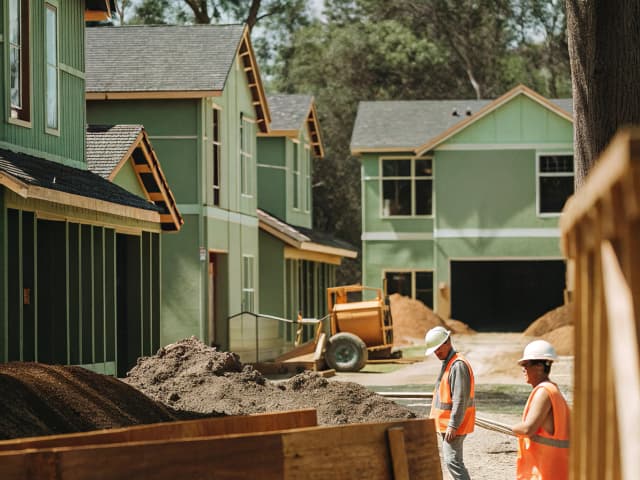
Building Homes and Jobs Trust Fund.
Makes technical changes to provisions governing the Building Homes and Jobs Trust Fund.
Building Homes and Jobs Trust Fund.

Makes technical changes to provisions governing the Building Homes and Jobs Trust Fund.

Food facilities: retail food safety.
Updates retail food safety standards with new rules for grease traps and service windows in food facilities. Allows larger passthrough window openings when equipped with air curtains or self-closing devices. Exempts employee-only restrooms from certain wall and ceiling requirements while maintaining sanitation standards. Relaxes overhead protection rules for temporary food facilities in low-risk environmental conditions.
Food facilities: retail food safety.

Updates retail food safety standards with new rules for grease traps and service windows in food facilities. Allows larger passthrough window openings when equipped with air curtains or self-closing devices. Exempts employee-only restrooms from certain wall and ceiling requirements while maintaining sanitation standards. Relaxes overhead protection rules for temporary food facilities in low-risk environmental conditions.

Downtown revitalization and economic recovery financing districts.
Authorizes all cities and counties to form downtown revitalization financing districts. Establishes criteria for non-SF districts: 75% urban perimeter, 20% vacancy, and transit priority area. Permits opt-in before the first building permit; first distribution begins after occupancy; eligibility ends in 2032. Eliminates diversion of tax increments to a district fund and applies state labor standards.
Downtown revitalization and economic recovery financing districts.

Authorizes all cities and counties to form downtown revitalization financing districts. Establishes criteria for non-SF districts: 75% urban perimeter, 20% vacancy, and transit priority area. Permits opt-in before the first building permit; first distribution begins after occupancy; eligibility ends in 2032. Eliminates diversion of tax increments to a district fund and applies state labor standards.